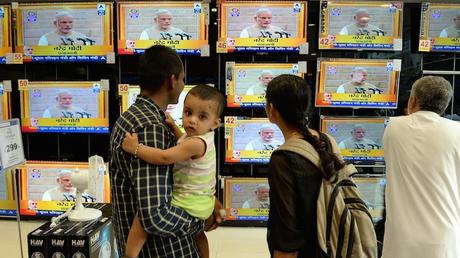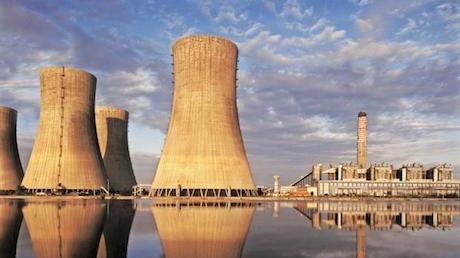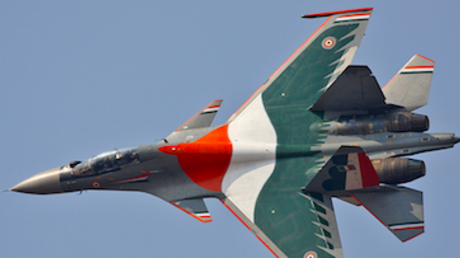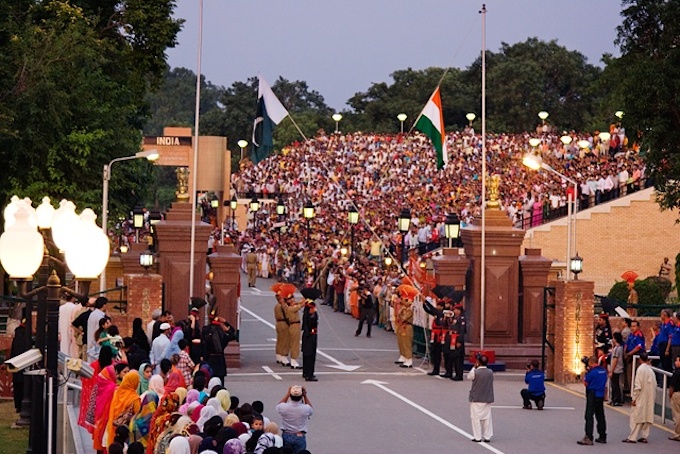From the way India’s political parties fought over relations with Pakistan, China, Sri Lanka and Bangladesh all through the United Progressive Alliance’s second term, it would have been easy to assume that foreign policy was going to be one of the main planks on which the 2014 battle was going to be fought.
Foreign policy issues dominated Indian politics all through Manmohan Singh’s second term as Prime Minister, just as it had the first term. If from 2004 to 2009 Prime Minister Singh staked everything to push through a civilian nuclear deal with the U.S, from 2009-2014 he tried his best to normalise relations with Pakistan.
Unfortunately for him, when it was re-elected in 2009, UPA-Mark II had to continue dealing with the fallout from the previous year’s terrorist attack in Mumbai, carried out by 10 men who came by boat from Karachi and were cadres of the Pakistan-based Lashkar-e-Taiba.
India had immediately cut off peace talks with Pakistan after the November 2008 attack. About a year later New Delhi discovered it was better to engage with Pakistan than not. But it wasn’t ever going to be easy. At a meeting between the Indian and Pakistan Prime Ministers in Egypt in July 2009, just two months after the government was re-elected, the Indian side agreed to de-link the peace process from progress by Pakistan in bringing the perpetrators of the Mumbai attacks to justice.
Known as the Sharm al-Shaikh agreement, the arrangement quickly turned into a huge political disaster for UPA-2 even as Manmohan Singh was jetting back in to India. Singh’s own Congress party was critical of the agreement, and the Bharatiya Janata Party described it as a “shame” that “even the seven seas could not wash away” (http://www.hindustantimes.com/india-news/newdelhi/seven-seas-will-not-wash-shame-at-sharm-el-sheikh-bjp/article1-437630.aspx). The Prime Minister put up a spirited defence in Parliament, but that is effectively considered the beginning of the end of Singh’s honeymoon with the Indian public.
Truth to tell, foreign policy has never been an important ingredient in the bread and butter of Indian elections.
Eventually India and Pakistan did begin talking again in 2010, but it was never able to regain the momentum it had in the years before 2008, also for reasons connected to developments in Pakistan.
Singh could not implement his dream of visiting Pakistan and his former home – he was born in Gah, a village in what is now Pakistan’s Punjab province, and went to school there till about the age of eight – for lack of support from his own party, and fears of stoking opposition protests.
Through 2013, UPA-2 took heavy shelling from the BJP for letting Pakistan get away lightly for violations of the ceasefire on the Line of Control that divides Kashmir.
Despite all this the election campaigns have barely touched on the powderkeg issue of India's relations with Pakistan. That is not such a surprise. Truth to tell, foreign policy has never been an important ingredient in the bread and butter of Indian elections.
The BJP manifesto caused a flutter with its promise to “study in detail India's nuclear doctrine, and revise and update it, to make it relevant to challenges of current times”.
India and Pakistan are both nuclear-armed nations but India has adopted a “no first use” policy as part of its nuclear doctrine. Observers interpreted the BJP manifesto to mean that the party was planning to change this. But the party’s prime ministerial candidate, Narendra Modi, has since said there is no such plan.
The manifesto’s foreign policy section merely says India and its neighbours have “drifted apart”, and that a BJP government “will pursue friendly relations. However, where required we will not hesitate from taking strong stand and steps”.
Pakistan is not mentioned by name, nor is any other country. It goes on to say: “Equations will be mended through pragmatism and a doctrine of mutually beneficial and interlocking relationships, based on enlightened national interest.”
The Congress manifesto says the UPA government “stood strong on terrorism and brought greater global pressure on Pakistan” and that if elected, the party “will work towards improving relations with Pakistan while stressing on the need to act against the perpetrators of 26/11.
All said and done, election speeches rarely touch on these issues. Rather they are all about promises on ending corruption and the country’s grinding poverty, putting food in the mouths of the hungry, creating jobs, bringing in supportive policies for industry and agriculture. In short, campaigning is all about the economy, and election strategies are all about forging the right pre-election alliances.
Meanwhile, down at the grassroots constituency level, it is all about fielding the candidate with the right caste or religious affiliation.
If the issue of relations with the neighbours have factored at all in a campaign, it was during the May 2009 election, which coincided with the final battles in Sri Lanka between the military and the Tamil Tigers. But here too, the electoral consequences were marginal or non-existent.
Tamil Nadu’s political link to the Tamil people of Sri Lanka has a long, difficult and controversial history. The two regional parties – the Dravida Munnetra Kazhagam and the All India Anna Dravida Muunetra Kazhagam – had been silent about the growing proportions of the military offensive in Sri Lanka in the two years before the election.
But as campaigning for the election peaked at the same time as the battles in northern Sri Lanka, the two parties jumped into the fray, competing with each other to claim the mantle of protector of Sri Lankan Tamils. The AIADMK - whose leader Jayalalithaa once vehemently opposed the Tigers, and had even called for deploying the Indian Army to capture Velupillai Prabahakaran, the leader of the LTTE - was in 2009 demanding a halt to military operations in Sri Lanka.
Not to be outdone, the DMK, which had been electorally wiped out in 1991 for being too close to the Tigers – the Congress leader and former Prime Minister Rajiv Gandhi was killed by a Tiger suicide bomber as he addressed an election rally in Tamil Nadu that May – also called for a ceasefire in Northern Sri Lanka. Its octogenarian leader, M. Karunanidhi, went on half a day’s hunger strike on Chennai’s Marina beach, flanked by his family and party members.
A short lull announced in the fighting by the Sri Lankan government at the same time enabled him to claim that he had succeeded in obtaining a ceasefire. The battles continued as did the elections, and at the time the leader of the Tigers was killed, the DMK, which was in the winning UPA-2 alliance, was bargaining for cabinet positions in Delhi.
But when the votes were counted, candidates did not win or lose because of their party’s positions on Sri Lanka but typically for Tamil Nadu, on their party’s alliance with other parties in the state, each of which has got a caste following. For instance, veteran politician, V. Gopalswamy – also the most vociferous supporter of the Tigers and the Tamil cause in Sri Lanka – was trounced by a rookie Congress candidate despite his party’s reputation for standing by and doing nothing to stop the war in Sri Lanka.
In UPA-2, the government voted twice in support of a resolution against Sri Lanka in the Human Rights Council, not because it was convinced this was the right step – if anything, nervous mandarins at the Ministry of External Affairs in New Delhi believed it was the wrong step as Sri Lanka forged closer ties with China – but because the DMK, an important ally, threatened to pull out.
The DMK eventually did leave the government in 2013, saying India had not done enough to strengthen that year’s resolution before voting for it. But clearly there were other reasons for the estrangement, including a slew of corruption cases against DMK ministers at the Centre.
The competitive politics on Sri Lanka between the two main parties in Tamil Nadu has roiled the state repeatedly over the last two years. Just before the elections, the AIADMK, which rules the state, called for the release of the three LTTE cadres and sympathisers who are serving life terms for the assassination of Rajiv Gandhi. Chief Minister Jayalalitha has also called for economic sanctions against and severing diplomatic ties with Sri Lanka. The Tamil Nadu State Assembly has passed resolutions to this effect.
But in this election (Tamil Nadu goes to vote on April 24), the Sri Lankan issue has not figured high in the campaign.
This year India abstained (like Australia) from the vote on the March Human Rights council resolution, calling for an international inquiry into charges of war crimes against Sri Lanka. With Congress in no alliance with any party in Tamil Nadu, the government felt freer to make that decision.
Indeed, with India the biggest country in the region, and fashioning itself as the “regional super power” India’s neighbours are more interested in the election than the election in them.
The Congress manifesto, released a day before the vote, diplomatically promised to “stress on time-bound inquiry into the allegations of human rights violations committed by the Sri Lankan forces during the concluding phases of the operations against the LTTE”. It also promised to “continue to extend all possible humanitarian and developmental assistance to enable the Tamil-speaking people in Sri Lanka to rebuild their lives in a dignified manner.”
What all this means is that India’s neighbours may at best have cameo roles in an Indian election, but are hardly the main or even an important issue for voters. Indeed, with India the biggest country in the region, and fashioning itself as the “regional super power” India’s neighbours are more interested in the election than the election in them.
Pakistan is intrigued by the possibility of “Prime Minister Modi”, and what a politician who has been accused of not preventing the killings of Muslims in Gujarat would bring to the negotiating table with Islamabad.
In Sri Lanka, the Tamil community believes it has more moral and diplomatic support from the BJP. Indeed, as the Tigers fought for their survival in May 2009, it emerged that some politicians in Tamil Nadu advised the LTTE not to negotiate a ceasefire as the BJP would win the election and bring the war to an end.
Sri Lanka has been warily eyeing Narendra Modi as Prime Minister, not really knowing what to expect, simply because very little is known about his stand on foreign policy issues and what his position is on the Sri Lankan imbroglio. Some in Sri Lanka hope that if elected, as the Hindutva leader of a Hindu majority nation, he will make common cause with the Sinhalese and their concerns.
Bangladesh is also considering the possibility of Modi as the next Prime Minister and the impact on India’s policy towards its big eastern neighbour.






